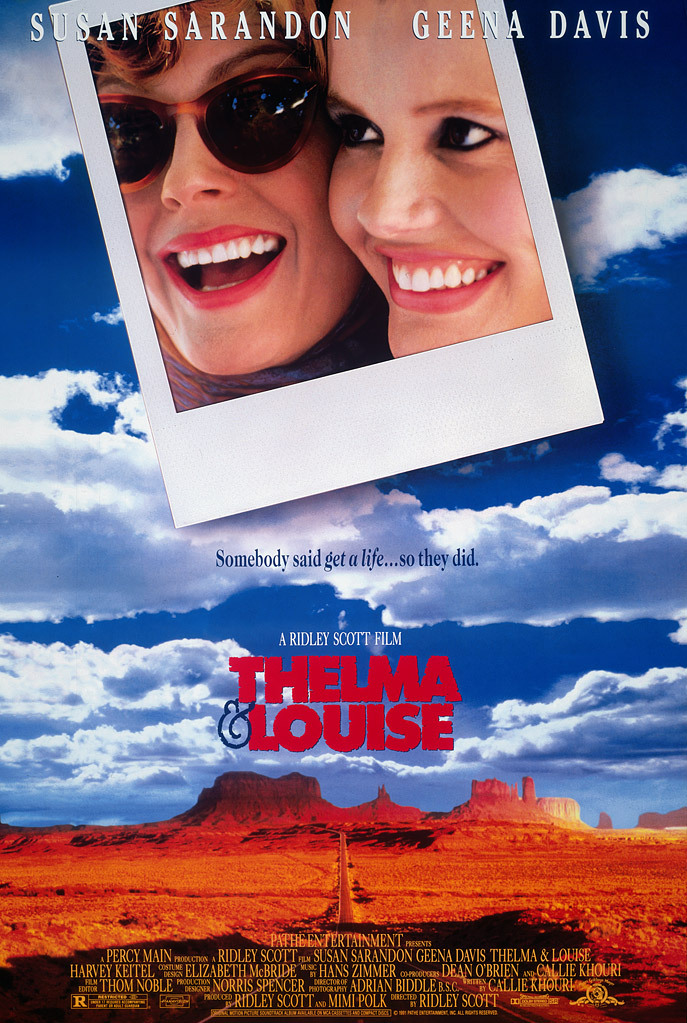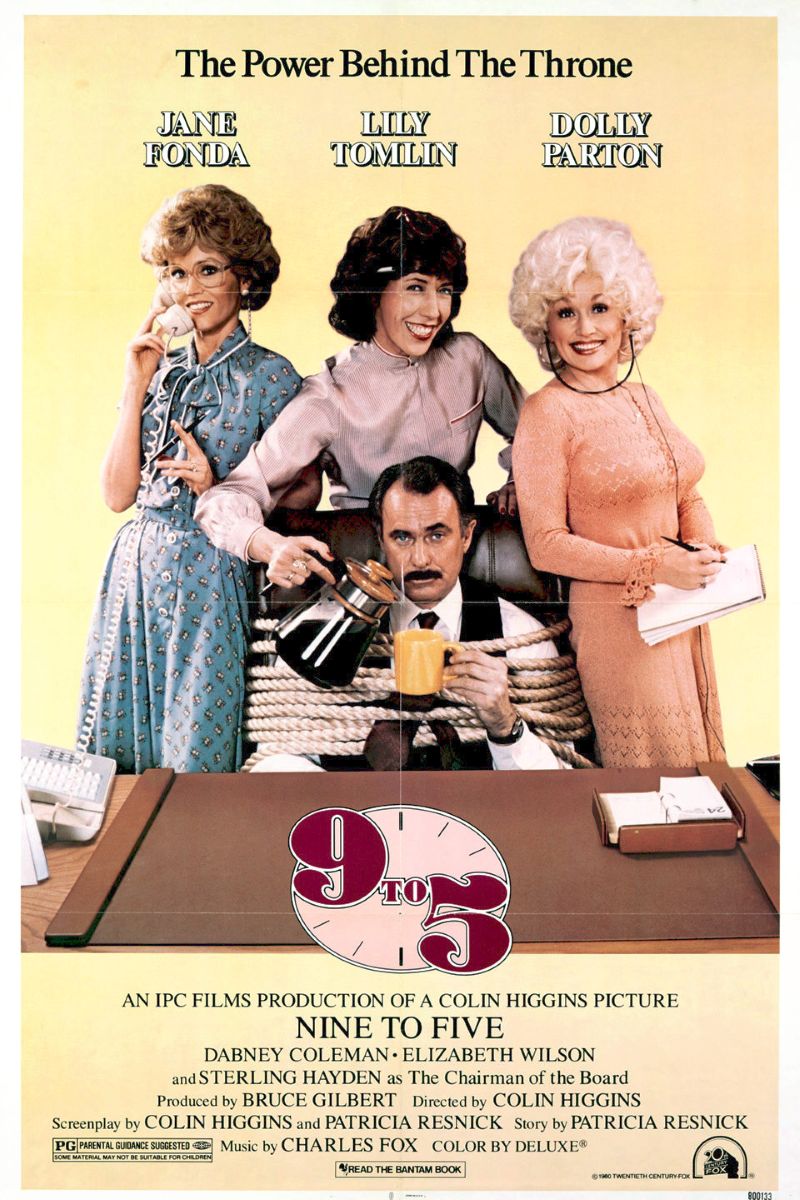
Thelma & Louise
Thelma & Louise
Two ordinary women—housewife Thelma and diner waitress Louise—embark on a weekend trip that turns into a fugitive journey after killing in self-defense. During their cross-country road trip, they experience a transformation from fear to liberation, ultimately choosing freedom over surrender.
Cast
Related Topics
🎥 Film Analysis & Review
“Thelma & Louise” stands as one of the most controversial and influential feminist films in American cinema history. Directed by Ridley Scott and written by Callie Khouri, this work places the theme of women’s resistance against patriarchy within the classic road movie framework, creating a film that is both a genre masterpiece and a feminist manifesto.
Revolutionary Gender Role Reversal
The film’s revolutionary nature is first evident in its subversion of gender roles. Traditional road movies are the exclusive domain of men, symbolizing freedom, adventure, and rebellion against the system. “Thelma & Louise” places two ordinary women at the center of this genre—they are not victims waiting to be rescued but protagonists controlling their own destiny.
Thelma’s transformation from submissive housewife to brave fugitive, and Louise’s evolution from trauma victim to determined protector, showcases the possibility of female awakening. This metamorphosis process demonstrates how women can reclaim agency over their lives and choices.
Groundbreaking Treatment of Sexual Violence
The film’s handling of sexual violence was groundbreaking for its time. Louise shooting Harlan is not simply justified self-defense but a radical response to systemic sexual violence. The line “You should have been more polite” becomes an indictment of all sexual predators.
The film makes clear that within the patriarchal legal system, women’s justice often cannot be obtained through legitimate channels, forcing them into outlaw territory. This theme resonates with contemporary discussions about how legal systems often fail victims of sexual assault.
The Liberation Journey
As their journey unfolds, the two protagonists experience a complete liberation process. They rob convenience stores and blow up a trucker’s oil tanker—these actions are not merely responses to specific oppression but symbolic subversions of the entire patriarchal order.
The scene with the sexually harassing truck driver is particularly significant, escalating the micro-aggressions women face in daily life into dramatic revenge, satisfying the psychological needs of countless female viewers who have experienced similar harassment.
Visual Language and Symbolism
The film’s visual language is equally rich with feminist meaning. The magnificent landscapes of the American West, traditionally associated with masculinity, here become the backdrop for female freedom. As the plot develops, the protagonists’ clothing changes from conservative to wild, their hair from neat to flowing—this external transformation mirrors their internal liberation process.
The iconic 1966 Thunderbird convertible is no longer a symbol of male power but becomes a vehicle for female independence. The car itself becomes a character in the story, representing the freedom of movement and choice that the women claim for themselves.
The Controversial Ending
The most controversial yet powerful aspect is the film’s ending. Thelma and Louise choose to drive off the Grand Canyon—this seemingly desperate choice is actually the ultimate declaration of freedom. They refuse to be captured and punished by the patriarchal system, choosing to end their journey on their own terms.
The car frozen in mid-air becomes an eternal symbol of freedom, suggesting their spirits will forever soar. This ending sparked intense debate about whether it represented defeat or victory, despair or transcendence.
Cultural Impact and Social Discourse
“Thelma & Louise” sparked heated social discussion. Conservatives criticized it for inciting violence and hatred toward men, while feminists saw it as a necessary response to patriarchal oppression. This polarized reaction proved that the film touched society’s most sensitive nerves.
The film forces viewers to consider fundamental questions: When legal channels fail to protect women, is their resistance justified? How far is too far when fighting systemic oppression? These questions remain relevant in contemporary discussions about justice and equality.
Influence on Popular Culture
The film has had a profound impact on popular culture. “Thelma and Louise” became synonymous with female friendship and solidarity, with the two protagonists becoming icons of female empowerment. The film inspired countless subsequent works, from “Kill Bill” to “Mad Max: Fury Road,” all bearing traces of its influence.
The buddy film genre was permanently altered by this movie, opening space for female-centered narratives that had been largely absent from Hollywood cinema.
Contemporary Relevance
More than thirty years after its release, “Thelma & Louise” remains startlingly relevant. In the era of #MeToo and ongoing struggles for gender equality, the film’s themes of female agency, resistance to sexual violence, and the limitations of legal justice continue to resonate.
The film’s exploration of how trauma affects women’s choices and relationships speaks to contemporary understanding of how sexual violence impacts survivors long after the initial incident.
Legacy and Criticism
While celebrated as a feminist landmark, the film has also faced criticism for its portrayal of violence as a solution and its relatively homogeneous representation of womanhood. Some critics argue that the protagonists’ whiteness and the film’s focus on individual rather than systemic solutions limit its feminist message.
However, these criticisms don’t diminish the film’s groundbreaking achievement in centering women’s experiences and agency in a genre traditionally dominated by male protagonists.
Conclusion
“Thelma & Louise” remains a powerful meditation on freedom, friendship, and resistance. It challenged audiences to reconsider assumptions about women’s roles and capabilities while delivering an entertaining and emotionally resonant story.
The film’s lasting power lies in its refusal to offer easy answers or comfortable resolutions. Instead, it presents complex women making difficult choices in impossible circumstances, leaving viewers to grapple with questions about justice, freedom, and the price of resistance that remain as relevant today as they were in 1991.
🏆 Awards & Recognition
- • 64th Academy Award for Best Original Screenplay
- • 49th Golden Globe Best Actress Nomination
⭐ Ratings & Links
Related Recommendations
讨论区
分享您的想法和观点
加入讨论
分享您的想法和观点
加载评论中...

